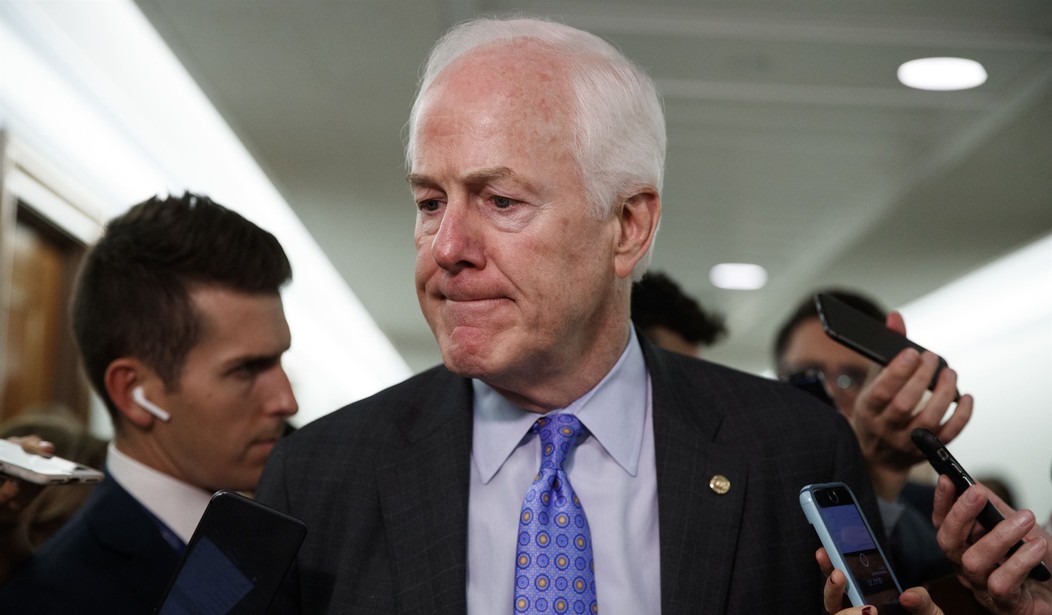Sen. John Cornyn was one of the key leaders in the discussions that led to the Senate gun control deal. There was a lot of trepidation about the deal before it was announced. Afterward, well, it could have been worse.
Yet “could have been worse” is far from “good.” There’s literally nothing in it that benefits gun owners, but plenty to take issue with.
Among other things, Cornyn is now defending himself from criticism over the red flag portion of the deal.
On the controversial “red flag laws,” a policy that has faced criticism from Republicans, Cornyn explained that the proposal does not enact national red flag laws, however assists states that do have red flag laws in place.
“We are, after all, talking about a constitutional right. But the goal is to keep guns out of the hands of people with criminal backgrounds and people with mental health problems, which is the current law,” he said.
Except that law is very different than a red flag law.
Red flag laws aren’t about people who we know to be criminals or who the courts have already determined are “mentally deficient.”
No, these laws enable the courts to take guns from people based on little more than accusations, accusations they don’t get to defend themselves from until well after their guns have been confiscated.
Moving on…
The senator responded to Missouri Attorney General Eric Schmitt raising concerns on the bipartisan bill Monday night on “Tucker Carlson Tonight.” Schmitt denounced “red flag laws” as a step toward eventual gun confiscations.
“Red states like Florida and Indiana have them and they seem to be working relatively well. But again, this is not there’s not a national requirement. And certainly one of the requirements of the funding will be the sort of rigorous due process that the attorney general said,” Cornyn responded.
Are they, though?
Florida, for example, passed a red flag law in the wake of Parkland in 2018. It’s impossible to tell whether it’s doing anything to stop mass shootings, but proponents often argue these laws are more useful for suicides.
So, let’s take a look at the suicide rate in Florida prior to 2018.
- 2015: 14.4
- 2016: 14.5
- 2017: 14.1
Since Parkland:
- 2018: 15.3
- 2019: 14.5
- 2020: 13.1
In other words, there doesn’t seem to be much of a change. Red flag laws don’t really seem to be doing all that much with regard to suicides. We’ll have to get more data to say definitively, but it should also be noted that there are laws already on the books to address suicidal people without red flag laws.
Actually, they remove the individual from all potential methods of suicide, thus are more likely to be successful.
As for murders, there doesn’t seem to be much information to allow us to look at those rates, but since most homicides are crimes of opportunity rather than long-term, planned-out crimes, it’s unlikely we’ll see any difference here either.
Now, that said, Cornyn is right that this isn’t a mandate. States are going to be free to decide for themselves.
Further, the 19 states that already have red flag laws are also among the states most likely to pass one in the first place. Unless the incentive is another $50 million in the state budget or something, I don’t see many others taking that particular plunge.
Again, this is kind of “it could be worse” territory, and it certainly could be.
However, it could also be a whole lot better as well.








Join the conversation as a VIP Member